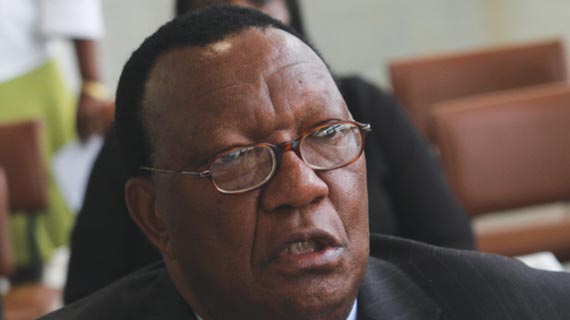
AGRICULTURE, Mechanisation and Irrigation Development minister Joseph Made has warned that the country might face a drought this year, as it was expected to harvest less than last year, with crops in some provinces having been written off.
Ruth Ngwenya Own Correspondent
Speaking on the sidelines of the official opening of the African Seed Trade Association (AFSTA) congress on Wednesday, Made said the situation was so bad that some parts of Matabeleland North were recording 75% to 100% crop write-offs.
“We are lucky that we have water in our reservoirs, so let us utilise that water and develop irrigation systems,” he said.
Agriseeds marketing executive Brien De Woronin said this year’s farming season was difficult due to climate change and crops ranged from fair to average in most parts of the country, with a few good crops found in Mashonaland Central.
“The crops have been through a lot of stress and personally, l do not think we will have a good yield this year,” he said.
“It is not the amount of rain, but the nature of the season.
“The distribution of rainfall is very important more than the quantity.”
- Chamisa under fire over US$120K donation
- Mavhunga puts DeMbare into Chibuku quarterfinals
- Pension funds bet on Cabora Bassa oilfields
- Councils defy govt fire tender directive
Keep Reading
AFSTA’s vice-president SeedCo Zimbabwe managing director Denias Zaranyika said seed breeders both regionally and internationally were working on drought-resistant varieties that would not require much water and fertilizer.
Zaranyika said they were going to introduce nutrient-efficient and water-efficient varieties that are expected to cut costs for farmers.
The nutrient-efficient varieties will be able to stand low levels of fertilizer that farmers use on their crops, but still get high yields.
Commenting on the issue of fake seeds that are being sold by traders, Made said it was an issue of concern to the whole region.
“Farmers must be educated on how to identify fake seeds because they are the ones who stand to lose,” he said.
“We should strengthen rural infrastructure for farmers to buy their seeds at local level from established companies and avoid buying fake seeds.”
Made added that seed companies in the country were involved in a new packaging system so as to make it easier for farmers to identify fake seed.
Three hundred and fifty delegates from regional and international seed companies are attending the ongoing AFTSA congress under the theme “Increasing African Farmer Productivity With Improved Quality Seeds”.










